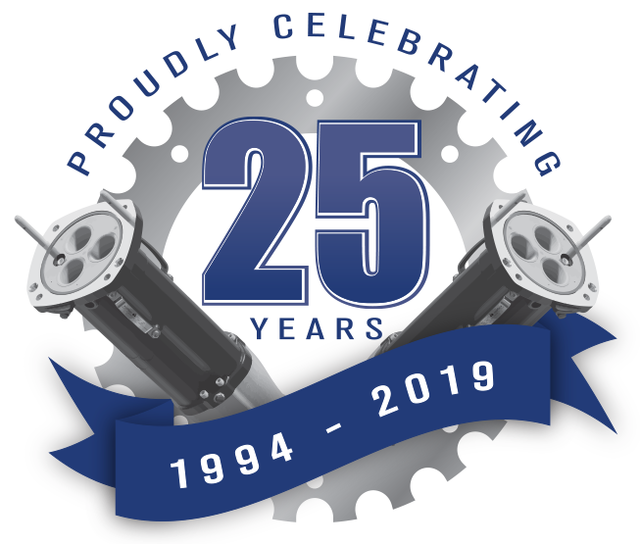ENVIRONMENT
“SDG-washing”: are miners falling short on commitments?
The Responsible Mining Foundation has released its latest report into the sustainable practices of some of the world’s largest miners, and while the general trend is positive, a lack of clear commitments and a worrying trend of “SDG-washing” remains in the industry. JP Casey speaks to the foundation to find out more.


Mining is an industry of extremes, with huge projects generating vast profits, that can often only function thanks to large-scale social disruption or economic damage. With this in mind, many miners face a delicate balancing act, as they try to maximise productivity and minimise damage from an industry whose very nature relies on digging material out of the ground.
Independent watchdogs play a crucial role in this balance, helping highlight the good work done by mining companies to minimise their environmental and social footprints, and also holding those slipping behind their targets to account. One such organisation is the Responsible Mining Foundation (RMF), a research organisation headquartered in Switzerland that is a firm believer in the positive economic and social benefits of mining, but that is eager to see these benefits realised in a responsible manner.
This year, the foundation published its 2020 Responsible Mining Index (RMI), its latest in a series of biannual reports that look into the sustainable practices of some of the world’s largest miners, and many of its conclusions point towards a recent trend of “SDG-washing”.
This process, where miners promote their activities in relation to the UN’s Sustainable Development Goals (SDGs), can deflect attention away from a miner’s actual impact on the world, and distort public perception of its commitment to these targets. While many of the world’s biggest miners are reviewed favourably by the 2020 RMI, the growth of SDG-washing could set a dangerous precedent for the industry.
More than half of the country’s coal mines are managed by pro-Russian separatist militia.Credit: DmyTo/Shutterstock.
More than half of the country’s coal mines are managed by pro-Russian separatist militia.
Credit: DmyTo/Shutterstock.
Positive trends
The report profiles the activities of 38 companies, operating 967 mine sites across 52 countries, and assigns each company a score from zero to six in six categories: economic development, business conduct, lifecycle management, community wellbeing, working conditions, and environmental responsibility.
By investigating each company in relation to these specific criteria, the report aims to generate a profile of the miners’ economic, social, and environmental impacts, and assess how effectively they are achieving the sometimes disparate goals of financial success, environmental protection, and social responsibility.
“These miners have more successfully engaged with local training and education projects than nation-wide economic strategies.”
Furthermore, each category is broken down into other indicators, many of which overlap with other categories. For instance, a key performance indicator for the economic development category is titled “collaborative research and development”, assessing the effectiveness of a company’s work with a country’s research and scientific institutions, an area broadly overlapping the community wellbeing category.
Many companies performed better with regard to skills and training than their general economic performance. The report notes that the average score awarded to all 38 companies was a 2.4 in relation to their support for local managers to develop their skills, and a 1.9 in relation to their backing for STEM education programmes in the countries they operate.
These figures are notably higher than the average of 0.6 that was drawn from companies in relation to their support for national and supranational socio-economic development plans in place around their operations, suggesting that these miners have more successfully engaged with local training and education projects than nation-wide economic strategies.

AusProof is celebrating 25 years of business in Australia in 2019.
Broad conclusions but a positive trend
The breadth of these categories and assessments means it can be difficult to draw anything but the broadest conclusions from the report, yet RMF CEO Hélène de Villiers-Piaget noted that, despite this difficulty, the general trend was a positive one.
“Although individual company results are generally very low compared to society expectations, overall results in the RMI Report 2020 show an increase of around 17% on the 2018 results,” said de Villiers-Piaget. “We recognise that each company has its individual context and history, so we encourage all companies to compete with themselves, and to strive for continuous improvement on economic, environmental, social and governance issues.
“Companies can certainly learn from precedent, and the RMI Report 2020 identifies a wide range of innovative leading practices that offer learning for others in the industry.”
“Overall results in the RMI Report 2020 show an increase of around 17% on the 2018 results.”
One company setting a number of precedents in the industry is Anglo American, which stands head and shoulders above the other miners, having been awarded the highest score in each of the six categories. Its performance is particularly impressive in the lifecycle management category, where its score of 4.64 is considerably above the second-placed score of 3.07, awarded to Teck, and is the highest single score awarded to any company across any category.
Underpinning this success has been a commitment to both words and action. The report ranks companies based on the scope of their commitments, and the efficacy of their actions, to help separate those making bold claims from those actually following through on them.
While Anglo American is one of six companies to be awarded a maximum score of six for its commitments in the lifecycle management category, alongside AngloGold Ashanti and Newmont, it is the only miner to receive a score of greater than four for its activities.

AusProof is celebrating 25 years of business in Australia in 2019.
The threat of SDG-washing
Despite this generally positive trend, concerns remain for the mining industry as a whole, with so-called “SDG-washing” one of eight key conclusions highlighted by the RMF.
“SDG-washing refers to the potential abuse of the UN Sustainable Development Goals for self-promoting purposes,” explained de Villiers-Piaget, describing how some of the world’s largest miners are engaging in selective reporting in relation to their work towards the SDGs, the critical targets for social and environmental development that the UN is aiming to reach by 2030.
“The RMI Report 2020 notes that although it is good to see that companies are increasingly aligning their sustainability reporting with the SDGs, this reporting is selective and risks the perception of SDG-washing as companies generally omit any mention of negative impacts potentially impeding the achievement of these internationally agreed objectives,” de Villiers-Piaget continued.
“Only a few companies can show that they have developed new or stronger management standards.”
The disparity between commitments and action is apparent in a number of companies across both ends of the RMI spectrum. Freeport-McMoRan ranks 13th on results from mine site data, and its activities were awarded a score of more than one, good enough to place the company tenth out of all companies assessed.
However, its commitments received a score of almost four, sixth-most out of all companies, while its tangible actions received a score of around 1.5, 15th-best among all miners assessed. Fortescue’s results are similar, albeit with much lower relative scores, with a commitments score of just over two, 20th-best among all miners, and an action score of under one, a ranking of just 29th-best.
“Most improvements since the RMI Report 2018 tend to be on commitments,” said de Villiers-Piaget, characterising this as an important first step, but one that must lead to more progress. “Only a few companies can show that they have developed new or stronger management standards, and most companies are still not able to demonstrate that they track and publicly report on how effectively they are managing economic, environmental, social, and governance (EESG) issues. This requires perseverance over time.”

AusProof is celebrating 25 years of business in Australia in 2019.
The need to inform and the need to act
Yet the biggest challenge remaining could well be the disclosing of information, with a lack of raw data at a number of mining operations hindering the RMF’s ability to draw substantial conclusions. Sibanye-Stillwater, for instance, is criticised in the report for its below-average performance in all six categories, and for not disclosing a number of details, such as the proportion of full-time employees versus contract workers killed at work in 2018, which it had done in 2017.
Sibanye-Stillwater took issue with many of the RMF’s reporting, however, with spokesperson Henrika Ninham saying that: “The RMF has, after various interactions, refused to accept that we report our information using four main classifications, our three operating segments and on Group level – notwithstanding that we report the majority of the indicators in their questionnaires.”
“Sibanye-Stillwater takes ESG seriously and will continue to build on the good things we do, we are committed to a journey of continued improvement,” Ninham continued. “[In] the 2019 FTSE Russell JSE responsible index, we scored in the top 80% percentile of basic resources, which includes all mining, forestry, and paper, and got a ‘4’ overall rating.”
Despite what the RMF considers to be a lack of transparency, the activities the miner has completed have been relatively effective.
The miner’s effectiveness score, representing how much tangible difference its projects make, is the 22nd-best, in and of itself not a particularly impressive ranking, but a figure that is well above its 29th-best score with regard to commitments. This suggests that despite the miner’s inability to make its commitments clear, its projects and employees are able to make a practical difference at work.
“To the extent that we need mining for everyday wellbeing, let’s ensure that it meets society expectations of responsibility.”
De Villiers-Piaget also said that, across the industry, more concrete action would be needed to deliver meaningful change in the sector.
“Companies need to do the doing, of course,” she said. “External stakeholders like the Responsible Mining Foundation can help to pose the questions that companies as good corporate citizens should be asking themselves.”
Indeed, de Villiers-Piaget went on to suggest that many miners are shirking their responsibilities in this regard, and that by embracing greater transparency within their operations, and making more meaningful commitments to EESG issues, they can deliver benefits for both themselves and the communities around their operations.
“Mining companies often say of society expectations on EESG issues, ‘but that’s not ‘material’ to our business’, or we also hear ‘we cannot expect mine managers to worry about EESG issues while they are busy with the ‘real’ work’,” she said. “Companies have much to gain from integrating EESG issues into normal business practice, into the ‘real’ work, and to broaden their concept of materiality beyond the business as a business, to environments and others in society affected by their activities.
“To the extent that we need mining for everyday wellbeing, let’s ensure that it meets society expectations of responsibility.”

AusProof is celebrating 25 years of business in Australia in 2019.
